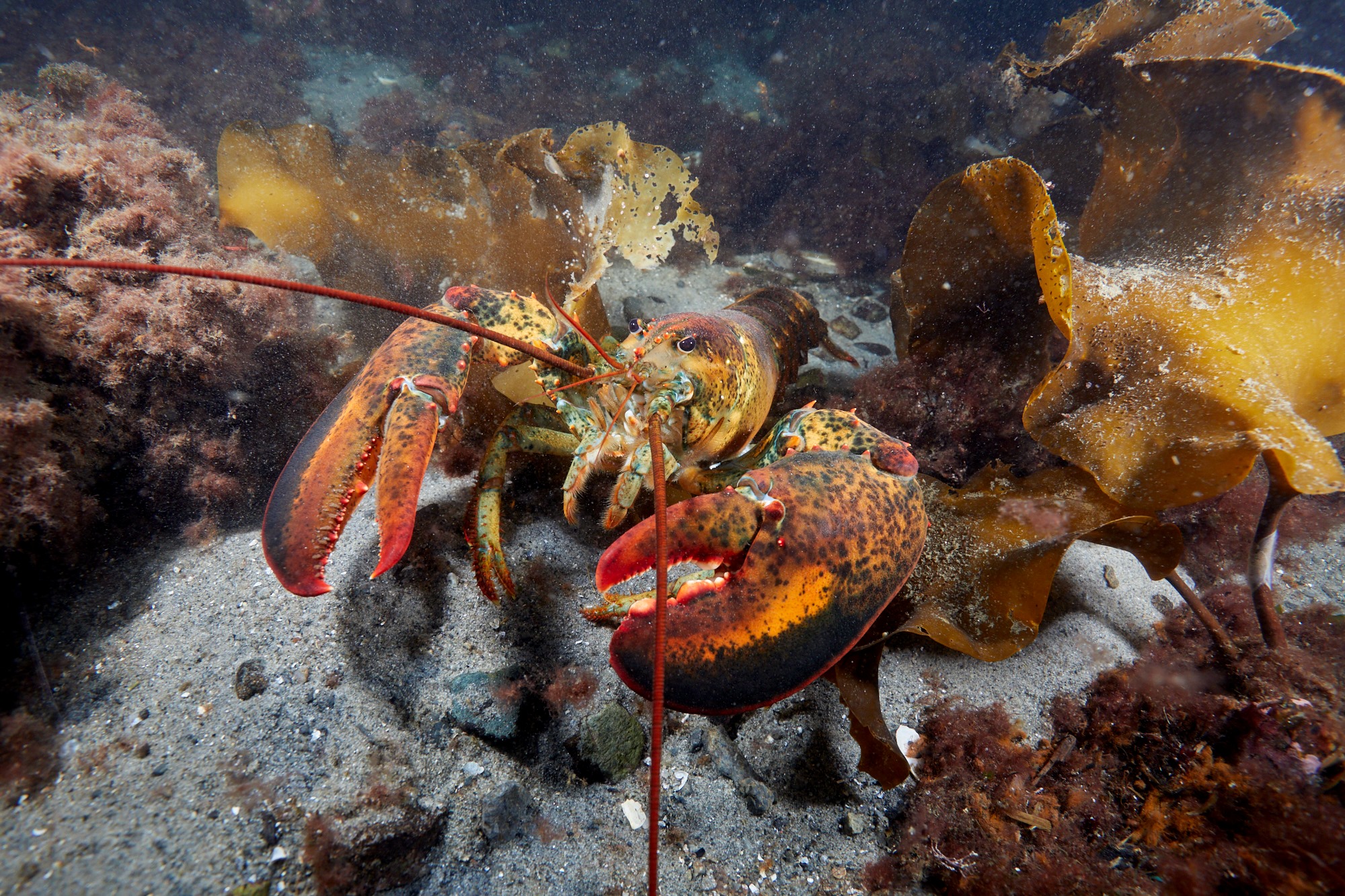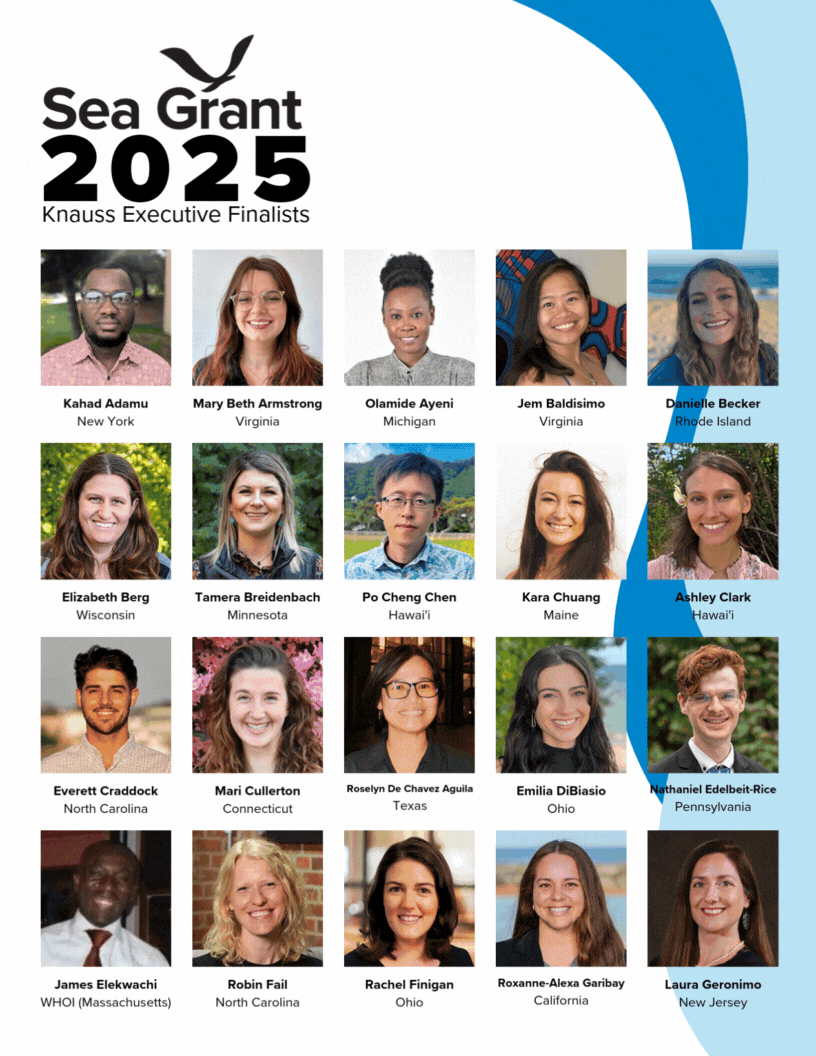Originally published by New Hampshire Sea Grant in March 2016
This year marks the 50th anniversary of Sea Grant, a program that has put science to work in America’s coastal communities for half a century. The National Sea Grant College and Program Act was signed into law in 1966, and N.H. Sea Grant began in 1968 with UNH professor of mechanical engineering Godfrey Savage serving as its first director. After achieving program status with the University of New Hampshire in 1971, N.H. Sea Grant began supporting marine-related research and extension efforts, teaming up on aquaculture outreach efforts with Maine Sea Grant before formally becoming a joint N.H./Maine Sea Grant Program in 1976. The program achieved joint college status in 1980, becoming the first dual program in the country. Twenty years later, the programs separated and N.H. Sea Grant achieved its own college program status with UNH in 2003.
N.H. Sea Grant’s mission is to promote the wise use, conservation and sustainable development of marine and coastal resources in the state. Our biennial Program Guide provides a more up-to-date overview of our efforts, including some highlights from our research and focus areas. N.H. Sea Grant’s current director, Jonathan Pennock, leads a staff of 14, many of whom hold joint appointments with UNH Cooperative Extension.
Although N.H. Sea Grant has evolved over time, there are three major endeavors the organization has supported throughout its history that continue to this day: aquaculture, the UNH Marine Docent Program, and the UNH undergraduate Ocean Projects course.
Aquaculture
In the mid-1970s, aquaculture in N.H. was a joint effort with Maine. Both Sea Grant Programs worked throughout the ‘70s to develop a New England blue mussel fishery that included mussel culture, consumer education and recipe testing. Extension agents also attempted to develop a coho salmon fishery at two locations in the Great Bay region around this same time. Since then, research supported by N.H. Sea Grant has included a focus on the aquaculture of oysters, sea urchins, and various species of fish.
Today, N.H. Sea Grant continues its efforts in fisheries and aquaculture, most recently working with local fishermen to raise and harvest steelhead trout, blue mussels and seaweed at the mouth of the Piscataqua River that are sold to restaurants and seafood markets in the region. Watch this video to find out more.
UNH Marine Docent Program
With the growing interest in marine science at UNH in the 1970s, Bob Correll, director of N.H. Sea Grant from 1975-1986, initiated the UNH Marine Docent Program in 1977 in order to offer tours of UNH’s Jackson Estuarine Lab and Odiorne Point. Joyce Kole was appointed as the first director of the Marine Docent Program, which was modeled after a similar program at the Scripps Aquarium in San Diego, Calif. Starting with about three dozen volunteers, the UNH Marine Docent Program began adding to its repertoire by offering educational programs such as Sea Treks and Coastal Floating Lab to local students. Sharon Meeker took over as Marine Docent Program director in 1981 and helped to grow the program with the addition of numerous eager volunteers who received training in marine science topics. By 1985, the National Sea Grant Program had recognized the UNH Marine Docent Program as the most effective outreach group of its time in the U.S.
Barbara Pinto Maurer was hired as program assistant in 1997, adding much-needed staff support to the fast-growing volunteer network. Mark Wiley took over as director of the UNH Marine Docents in 2004, and Dari Ward was hired as program assistant in 2006 after Maurer left. The program now includes more than 200 volunteers and is considered a “Best Management Practice” among Sea Grant programs nationwide, offering a variety of in-school and boat-based educational programs to improve marine literacy in K-12 students and adults. The docents are also heavily involved in teaching thousands of students and adults about marine science and ocean engineering at the annual UNH Ocean Discovery Day.
UNH Ocean Projects Course
As Jacques Cousteau was achieving international fame and helping to spread interest in the marine world, UNH began offering a class for undergraduates to receive hands-on training in the ocean engineering and marine biology fields. This two-semester Ocean Projects course, created in the 1965-66 school year, allows students to form teams to address real-world challenges in the marine environment. The National Sea Grant Office provided some funding for the course starting in 1968, which allowed the student teams to create technology from start to finish, designing a solution using materials they purchased that fit within their project budget. This course allowed students to develop many useful skills needed for a variety of careers, particularly those in the engineering fields. N.H. Sea Grant began providing partial funding for the course in 1973.
Larry Harris, UNH professor of zoology, worked as a mentor to student teams from the beginning of the course. His first task was working with students to design and build the Engineering Design and Analysis Laboratory Habitat (EDALHAB), an 8’ x 10’ structure intended to allow scientists to live underwater and conduct research. EDALHAB was launched on April 26, 1968 in Alton Bay of Lake Winnipesaukee, and four UNH student “aquanauts” lived in it for just over 48 hours. Harris now co-leads the Ocean Projects course with Rob Swift, UNH professor of mechanical engineering. Recent student projects range from automated underwater vehicles that assist with seafloor mapping, tidal energy buoys and multi-trophic aquaculture. Some of the technologies developed from the projects allow students to apply for patents or enter competitions, including a national remotely operated vehicle (ROV) competition.
N.H. Sea Grant: Moving Forward
As N.H. coastal communities and the Gulf of Maine face new challenges, N.H. Sea Grant is working with partner organizations, volunteers and many other groups and individuals to address marine-related issues through its research, education and extension efforts. You can follow N.H. Sea Grant on Facebook and Twitter, check out photos on Flickr and videos onYouTube or sign up for news alerts on our RSS feed.


